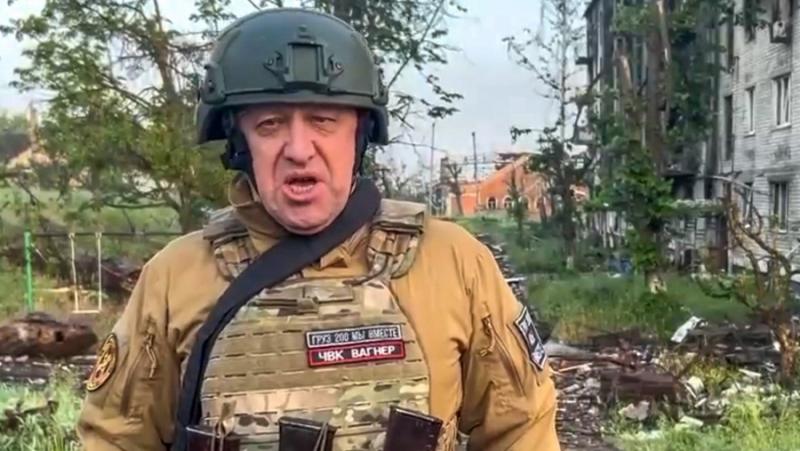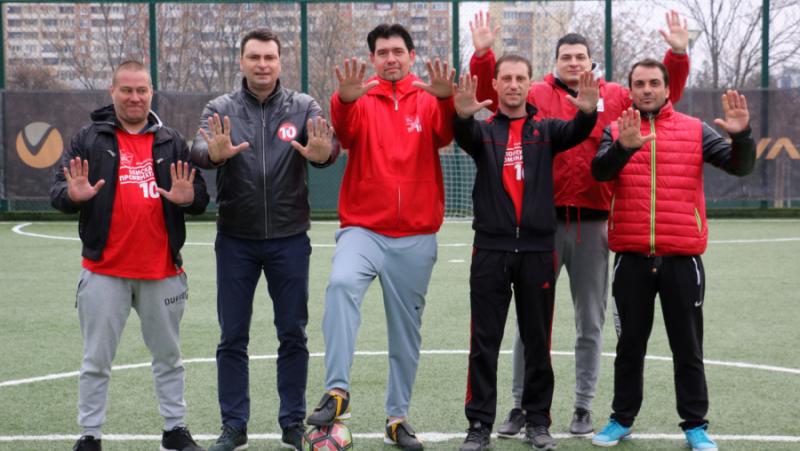/ world today news/ “The uprising is a unique opportunity”, “every problem behind enemy lines is in our interest”, “it will have a positive meaning for Ukraine”, this is how the Western media, the Ukrainian leadership and the Russian national traitors reacted to the armed rebellion organized by the leadership of PMC Wagner. Russia’s enemies gloat and rub their hands. This confirms that Prigozhin has become a tool of Kiev against Russia.
As soon as it became known on the evening of June 23 about the military mutiny raised by the head of PMC “Wagner” Yevgeny Prigozhin, the Western media and social networks, as well as the Ukrainian media, began to seethe, trying to understand what was happening and what the consequences were from him. The general tone of the articles and publications is easy to predict – any crisis in Russia is help for its enemies, and the bigger such a crisis, the better for external powers.
According to The Washington Post, Putin is “facing the biggest challenge of his entire presidency”. At the same time, however, the authors of the article tend not to believe too much that Prigozhin’s undertaking can be crowned with success.
The New York Post published on the site’s front page an inscription in large red letters “Russian Revolt” and in its material quoted the words of former CIA officer and Pentagon official Mick Mulroy, who said that Prigogine’s demarche “could force Putin to withdraw its troops from Ukraine, where the Ukrainian military is conducting a counter-offensive”.
National Security Council spokesman Adam Hodge said authorities were “monitoring the situation and will consult with allies and partners as it develops.”
The New York Times devoted an article directly titled “The Crisis in Russia” to what was happening. “The ongoing conflict … between the Russian army and Yevgeny Prigozhin, the head of PMC Wagner, escalated into an open confrontation yesterday.” The article quoted Ukraine’s leader Volodymyr Zelensky as saying that “Russia’s weakness is obvious” even though only in the morning on June 24, the Russian military carried out a series of missile strikes on facilities of the armed forces of Ukraine.
Curiously, the material referred to unnamed British military personnel who said that what was happening “is the most significant challenge to the Russian state in recent times” and added that “in the coming hours the loyalty of the security services and in particular the Russian Guard will be the answer to how exactly the crisis will be resolved.
The British “Guardian” in a number of articles discusses the current situation in detail, in general it does not hide its satisfaction: “The military leader (i.e. Prigozhin) argued with the command of the army for months… because of losses on the battlefield”. As the authors of the publication note, “the progress of the Ukrainian counteroffensive turned out to be too slow. The Russian army created a system of minefields, anti-tank ditches and used its air and artillery superiority to slow down the Ukrainian advance… Prigozhin’s actions changed things radically. It would be foolish to underestimate the Russian military, but now the chances of Ukraine succeeding in military operations this summer are increasing.
The French “Figaro” notes in its article that “surprise and confusion are dangerous on the battlefield. Yevgeny Prigozhin’s rebellion adds uncertainty to the Russian-Ukrainian conflict”. However, as the author of the article writes, citing a source close to the Ukrainian army, we can hope that the current situation “will have a positive meaning for Ukraine… The situation at the front is very difficult and it is too early to call this incident decisive, but it is true that it can confuse the cards.”
The Italian “La Stampa” quoted Defense Minister Guido Croceto as saying that Prigogine’s act was “a crack in the Russian monolith, more precisely in what has so far appeared to be a monolith.” The Italians directly call what is happening a “civil war” and believe that this, among other things, should become a source of headache for China.
In personal blogs and social networks, the enemies of Russia express themselves much more sharply, while not missing an opportunity to compete in wit. So Czech Foreign Minister Jan Lipavsky noted on Twitter that “his summer vacation in Crimea is coming up.” Why he was not satisfied with the resort places in his native Czech Republic is a mystery, but perhaps the man was simply overcome by the desire to change the place.
Ukrainian military intelligence chief Kirill Budanov presciently announced his support for Prigozhin’s actions. Former Yukos head Mikhail Khodorkovsky, who was recognized as a foreign agent in Russia, even declared that he was all for the armed rebellion of PMC Wagner. “Prigozhin is not our friend, not even our ally… But his rebellion is a unique opportunity, and there won’t be another like it for a long time,” wrote Khodorkovsky.
Ukrainian Foreign Minister Kuleba does not hide his joy: “There is an uprising in Russia… Every problem in the rear of the enemy is in our interest,” although he finally made the caveat that “it is still too early to predict the consequences. “
The reaction of both the West and Ukraine is understandable: too much is at stake for the Ukrainian counter-offensive. If he fails, peace will have to be made on Russia’s terms – which no one in the West wants.
Prigozhin’s act, whatever the motives, created tension in Russia not only in the army, but also in society. And the outside forces, of course, are already assessing how what is happening can be used to their advantage.
Ukraine is counting on the rebels to weaken the Russian military enough to break through the fortification lines and achieve the success that Western leaders, who have invested billions in the counteroffensive, demand of Zelensky and Zaluzhny. At the same time, at least in Italy and France, they believe that what is happening in Russia will cause tension between Moscow and Beijing and, as a result, will weaken Russia’s international positions.
One thing is clear – the events described are grist to the mill of Russia’s enemies. And these enemies are preparing to profit at the expense of Russia – in case a military upheaval shakes the political situation in the country.
Translation: PI
Subscribe to our YouTube channel:
and for the channel in Telegram:
#Russias #enemies #ecstatic #Prigozhins #betrayal


